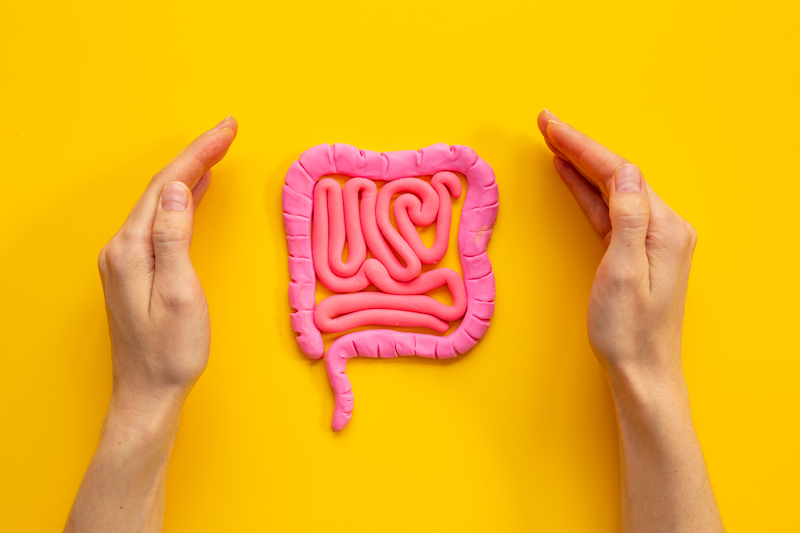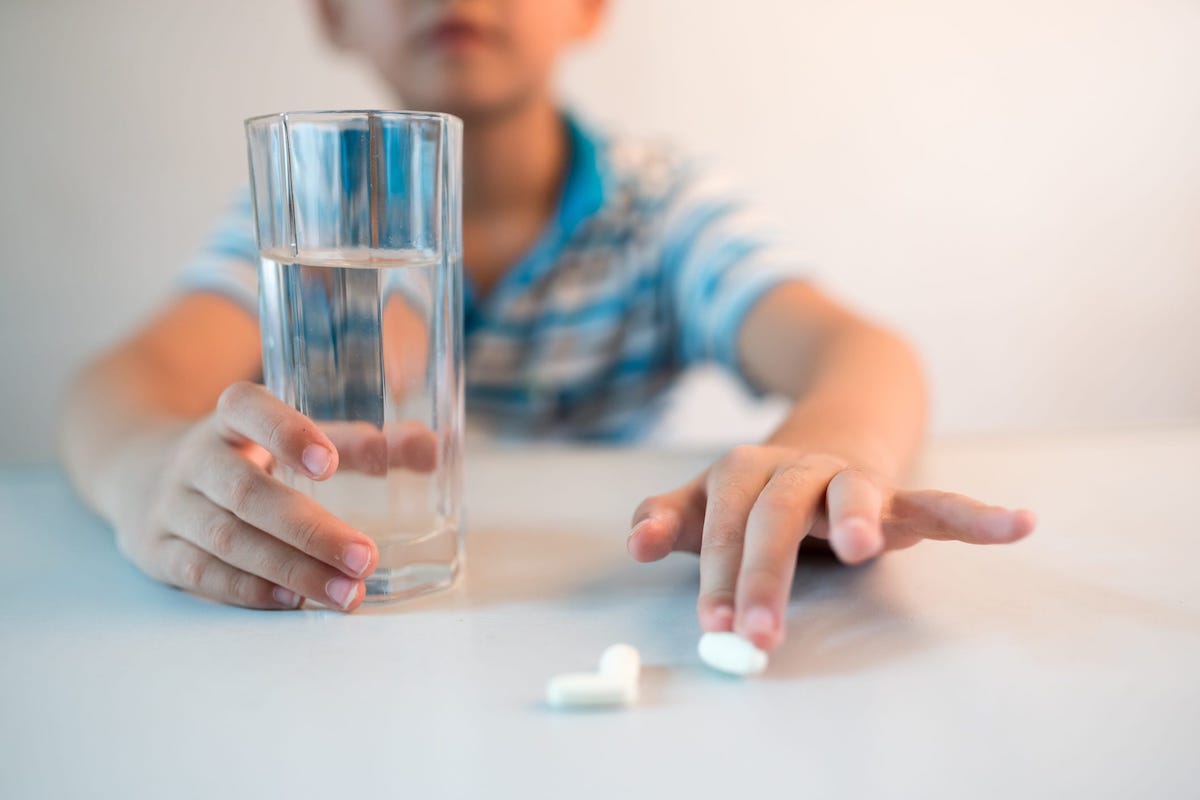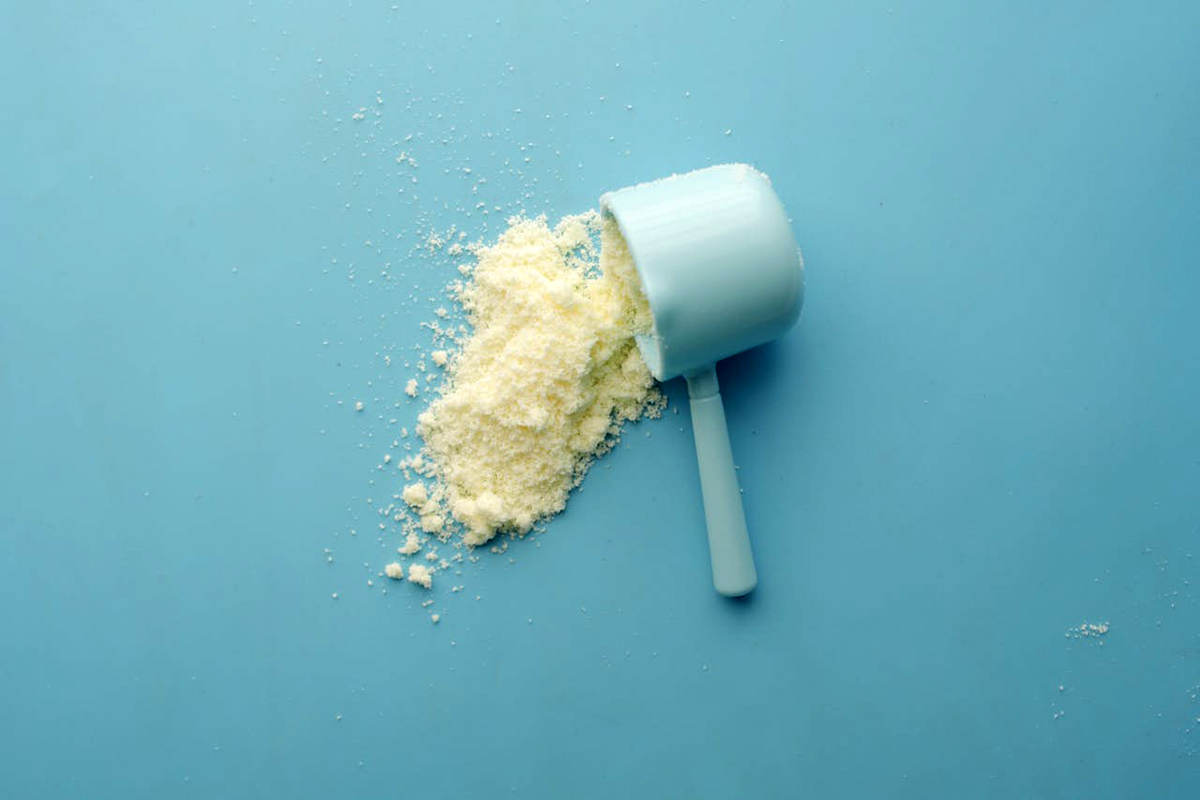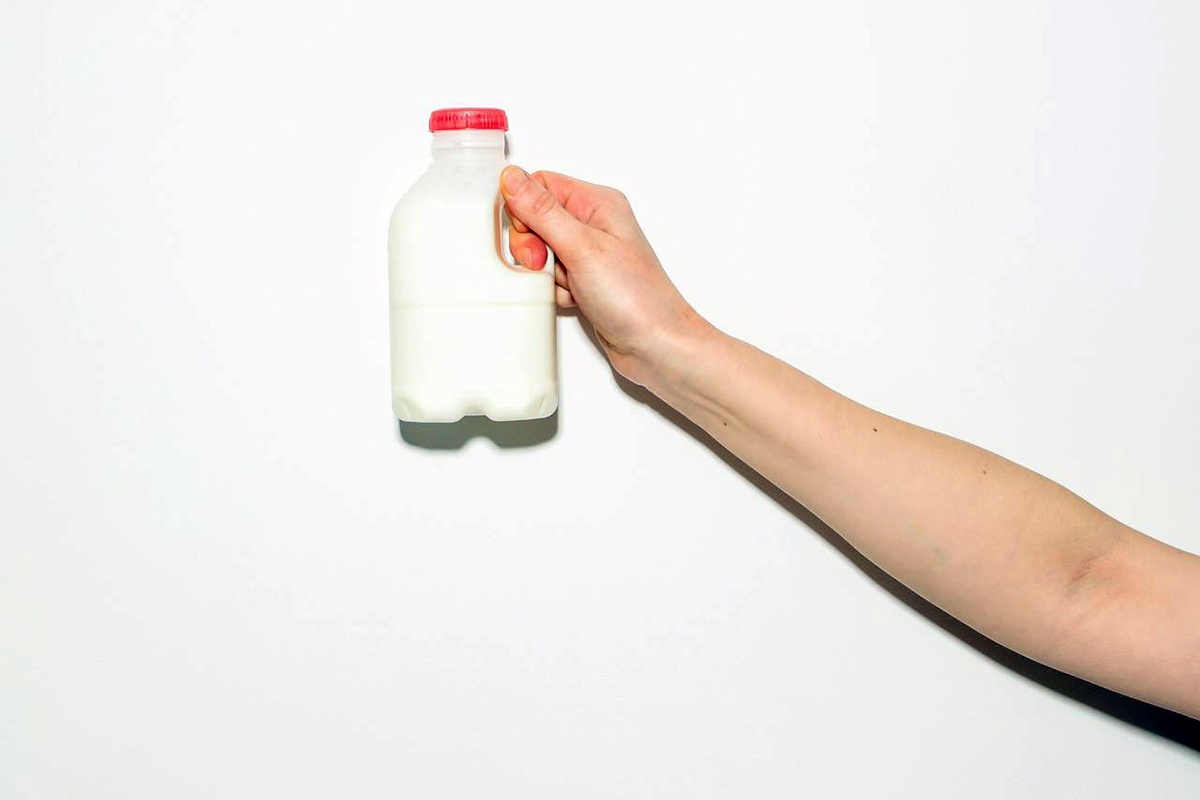During my childhood in the 1980s, no one discussed “gut health.” I assume we had guts and probably some were healthier than others, but I was definitely never fed an ad for a soda designed to make my gut work better. Fast forward 40 years, and gut health is the new thing, spurred on by advances in our knowledge and understanding of the microbiome.
The microbiome is the collection of trillions of bacteria, viruses, and other microbes that live in and on our bodies, mostly in the gut (which includes the stomach and the small and large intestines). These organisms work in symbiosis with us. Most importantly, they help digest our food.

There are three main claims about the microbiome:
- A significant problem with your microbiome can lead to serious digestive issues (bloating, cramping, diarrhea).
- There is an optimal microbiome that, if achieved, would improve many aspects of your health.
- There are ways you can achieve this optimal microbiome, perhaps through the consumption of commercial products (supplements, etc.).
The first of these is true, and the current evidence for the second and third claims is substantially weaker. But let’s dive into the data.
How does the microbiome impact our health?
All claims about the microbiome are built on the idea that it impacts our health. How do we know if this is the case?
Clostridioides difficile (commonly called C. difficile or C. diff) is a bacterium that can cause serious diarrhea and long-term damage to the colon. For most healthy people, exposure to this bacterium is no problem, and, indeed, a lot of us carry it normally. In your gut, this bacteria may exist with other beneficial bacteria and not cause problems.
Issues often arise after a course of antibiotics, especially in less healthy older adults. The antibiotics kill the good gut bacteria, but C. difficile is resistant to many antibiotics, and with the other bacteria gone, it can multiply. This can cause a possibly life-threatening diarrheal illness, and steps are necessary to both kill the C. difficile and to return good bacteria to the gut. These include possibly additional antibiotics (that the C. difficile is not resistant to) and, in some cases, a fecal transplant. (This is what it sounds like: transplanting feces from a healthy individual to rebuild the gut microbiome.)
In general, even if C. difficile is not the cause, antibiotics can cause diarrhea because they kill beneficial bacteria. Even for healthy adults and children, taking a probiotic alongside an antibiotic can reduce these symptoms.
All this makes clear that the microbiome matters for overall health. Significant disruptions (such as a course of antibiotics) can directly impact digestion and can cause serious illness. In addition, it is well known that fiber and hydration impact the quality of your poop. This is likely also reflective of the microbiome, especially the fiber, which the bacteria appreciate. Again, clear evidence that the microbiome plays a role in digestion.
Can the microbiome cause serious health issues?
Here is where things get complicated. There are many other illnesses that the microbiome is claimed to impact, but the evidence at this point is not very compelling.
One good example of this is the possible connection with asthma. A 2024 review paper summarizes a large number of studies that look at a possible link between asthma and characteristics of the gut microbiome. They find that, on average, the “alpha diversity” of certain bacteria in the microbiome correlates with less asthma, while, on the other hand, certain bacteria or fungi correlate with more asthma.
This correlation is interesting, but there are at least two significant issues here that make it difficult to draw clear or causal conclusions. One is that there is no agreed-upon way to measure a “good” microbiome. Diversity of bacteria (“alpha diversity” or “beta diversity”) is a common metric, but across studies, the number of bacteria and types measured varies. Generally, what makes a “good” microbiome will vary across individuals, so it’s not even clear what you would ideally measure. Overall, the analysis is not well defined.
A more familiar issue is that these studies measure correlation, not causality. And in particular, as the review points out, the studies cannot adjust for obesity. We know that the microbiome is affected by what foods people eat, which also affects weight. It is possible that, for example, consumption of a lot of ultra-processed foods impacts obesity rates and also changes the microbiome. But it may then be that obesity impacts asthma (this is a well-known link), and the impacts on the microbiome are just ancillary.
Similar issues come up when studying other outcomes. Researchers have suggested that the microbiome may play a role in depression. But these links are largely theoretical. Even in controlled rodent studies, the situation is complicated. Some suggest that introducing a bad microbiome prompts depressive symptoms in rats, but other data suggest that the presence of depression affects the microbiome.
There is speculation about the microbiome beyond asthma and mental health – indeed, it has been linked to a huge number of health problems, including other autoimmune diseases, eczema, and even acne. But the evidence for those is similar to these cases – it’s limited by many empirical problems. It’s obvious that if there are links, they are complex, and our understanding at this point is very limited.
What determines your microbiome? Can you improve it?
The microbiome largely develops over the first several years of life, determined by some combination of genetics, environment, diet, and medication use. Exactly how this happens, and what affects it, is not very well understood. We know that there are differences in the microbiome by mode of birth (C-section versus vaginal birth) but these fade by six months. Breastfeeding and early antibiotic use can also impact microbiome development, although again, these differences tend to fade as children age.
If you are looking for a microbiome fix that, say, eliminates your child’s asthma or treats your anxiety, the evidence is not there to suggest a clear link, or any particular treatment. There are many scientists (and start-ups) looking to create supplements that would improve your microbiome and affect something about health. Thus far, though, evidence for the efficacy of such treatments is minimal.
There are a couple of things we do know, which may help here.
First, we do know that if you or your child is taking antibiotics, taking a probiotic at the same time can help reduce diarrhea.
Second, fiber is well understood to affect digestive health, possibly through the microbiome. There is also evidence on the role of fermented foods in colonizing the microbiome, although not all studies find this. If you are looking for a way to improve your poop, these are the dietary changes that are worth considering.
These actions are relatively simple and inexpensive (although getting children to eat fiber-rich fermented foods is not always easy). And based on the evidence, these changes might improve your digestive health to some extent. But it is important to say that these aren’t likely to produce miracles.
Given that, one might ask, why am I hearing so much about this right now? I think there are two answers. First, there is a lot we do not understand about how the microbiome works, and that’s exciting from a research standpoint. The success in treating C. diff with fecal transplants underscores the potential here, and researchers are just … excited.
The second, more venal answer is that there are commercial opportunities. If “fixing” your microbiome can improve your health broadly — or if people think it can — there are a lot of supplements that can be developed and sold. But just because someone on TikTok tells you a microbiome pill will fix all your problems, that doesn’t mean it is true.
The bottom line
- The gut microbiome plays an important role in digestion. Disruptions to the microbiome (such as from a course of antibiotics) can lead to digestive health issues, including C. difficile, a bacterium that can cause serious diarrhea and long-term damage to the colon.
- While there’s growing interest in the idea that the microbiome affects conditions like asthma, depression, and other health issues, the current evidence at this point is not conclusive.
- The microbiome largely develops over the first several years of life, determined by some combination of genetics, environment, diet, and medication use. Mode of birth (c-section versus vaginal birth), breastfeeding, and early antibiotic use can all impact microbiome development, but these differences tend to fade as children age.
- There’s some solid evidence that taking probiotics alongside antibiotics can reduce diarrhea, and that fiber and possibly fermented foods support digestive health. These are simple, low-cost steps that might help with gut function, but they’re not a cure-all.






















Log in
I am a fecal transplant donor at UMN and the success rate of treating C. Diff with a fecal transplant from a person with a healthy gut is very high (I think in the 90th percentile). FYI they’re working to change the phrase “fecal transplant” to “microbiota therapeutics” thanks for bringing attention to this topic.
That is amazing that you are a donor! Fecal transplants are so life changing for all the recipients- thank you!
What is your take on on the April 2025 publication by Beier et al in Journal of Infectious Disease on early childhood antibiotics & chronic pediatric conditions (as well as the Communications Biology paper from Jarman et al in June 2025 on bifidobacterium deficit in US infants)? I agree that the science is still evolving and the directionality of the causal relationship is still very much in question, but Beier’s analysis of a sibling-matched cohort is compelling to me.